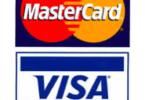Yesterday the Department of Transport (DoT) announced a probe into the four largest airline loyalty programs (American Airlines, Delta Air Lines, Southwest Airlines, and United Airlines) that aims to protect customers from potential unfair, deceptive, or anticompetitive practices. There are four main areas of concern:
- Devaluation of earned rewards: Airlines may apply changes retroactively to rewards that customers already earned in ways that reduce or eliminate accrued value. They may move the goal post by increasing the number of points needed for redemption or status upgrades. Airlines may impose new restrictions, such as increasing the blackout dates for flight redemptions, limiting who can use the points to travel, adding or changing an expiration date, requiring an active account for points to remain valid, or adding new hurdles to qualify for status. They may take away complimentary benefits, require a higher status to receive them, or refuse to honor promotions. When earned value disappears before it can be redeemed, customers have little recourse to reclaim it from the airline. As part of DOT’s probe, airlines must describe each change made to their rewards program over the last six years, how it impacted existing points and status, and what options were provided to members to avoid losing any value or benefits they had already earned.
- Hidden and dynamic pricing: When the true dollar value of rewards is hidden or unpredictable, it can be easier for airlines to devalue rewards without detection. Hiding the dollar value makes it harder to compare the redemption price against the cash price across different rewards. It can mask disparities between a point’s purchase price and its dollar value. Problems created by opaque pricing are compounded by dynamic pricing where the number of points needed for redemption change frequently and unpredictably. As part of DOT’s inquiry, airlines must provide the average dollar value of one reward point, the value of a point when it is redeemed for various services, and the price to purchase a point directly from the airline. They must also identify practices related to dynamic pricing and the financial impact of those practices on consumers.
- Extra fees: Airlines often add extra fees for passengers to maintain, redeem, or transfer points they have earned. These fees may add little benefit but can reduce the value of rewards by making them more expensive to accrue or use. Airlines must identify and describe to DOT each fee associated with their rewards program that is charged to consumers related to the use or administration of their rewards points, the actual cost to the airline for a consumer to take the action for which they are charged a fee, and the rationale for charging the fee.
- Reduction in competition and choice: Rewards programs are a critical financial asset and can be a key part of airline mergers. These mergers can eliminate or reduce competition and choice for rewards consumers, particularly as an airline’s dominance increases in a particular region. Moreover, the integration of two rewards programs can present problems if customers in one or both programs lose value, rewards, or status in the transition. Some rewards practices may create opportunities to collude or price signal. As part of DOT’s inquiry, airlines must describe and provide documents related to their mergers involving rewards programs, the integration process of merging programs, their rewards program partnerships, and how they monitor, analyze, and/or react to other airlines’ competing rewards program.






